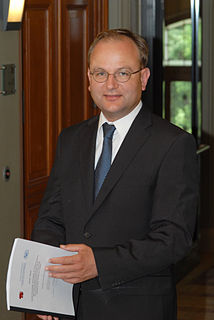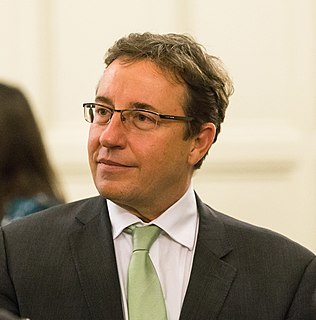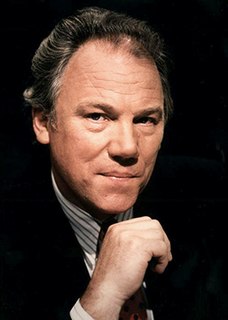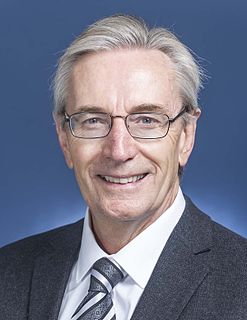A Quote by Cass Sunstein
It is even possible that desirable redistribution is more likely to occur through climate change policy than otherwise, or to be accomplished more effectively through climate policy than through direct foreign aid.
Related Quotes
It's possible that we'll screw up the climate so badly that most of us will die and a few breeding pairs will remain somewhere in the arctic. What's more likely is that we'll continue remaking the planet, driving many species to extinction, killing millions of people through the indirect effects of climate change, making life even harder for the poor and powerless than it is now, and making it a little more difficult for the global middle class to live the lives to which they have become accustomed - in other words, business as usual, only worse.
With Climate Change as a Security Risk, WBGU has compiled a flagship report on an issue that quite rightly is rising rapidly up the international political agenda. The authors pull no punches on the likelihood of increasing tensions and conflicts in a climatically constrained world and spotlight places where possible conflicts may flare up in the 21st century unless climate change is checked. The report makes it clear that climate policy is preventative security policy.
Foreign policy always has more force and punch when the nation speaks with one voice. To remain secure, prosperous, and free, the United States must continue to lead. That leadership requires a president and Congress working together to fashion a foreign policy with broad, bipartisan support. A foreign policy of unity is essential if the United States is to promote its values and interests effectively and help to build a safer, freer, and more prosperous world.
First of all, developed countries have basically expropriated the atmosphere of the world community. But one must say clearly that we redistribute de facto the world's wealth by climate policy. Obviously, the owners of coal and oil will not be enthusiastic about this. One has to free oneself from the illusion that international climate policy is environmental policy. This has almost nothing to do with environmental policy anymore.
I do remain optimistic that one day the world will realise that carbon dioxide is more of a friend than an enemy to the earth's flora and fauna, and I do seriously believe that, given the extraordinary complexity of the natural forces controlling our climate, which have done so for millions of years, the only sensible policy response to the natural process of climate change is prudent and cost-effective adaptation.
It is certainly true that conservative Christians are much more likely to doubt the reality of climate change than mainline Christians or the unaffiliated. But when we control for political affiliation and for the important role of thought leaders in determining our opinions on social issues such as climate change, most of the faith-related bias disappears.
The more hardcore conservative you are, the more tightly identified you are with defending the interest of capital as an interest of the system based on hyper-competition, the more likely it is that you vehemently deny climate change. Because if climate change is real, your worldview will come crashing down around you.



































